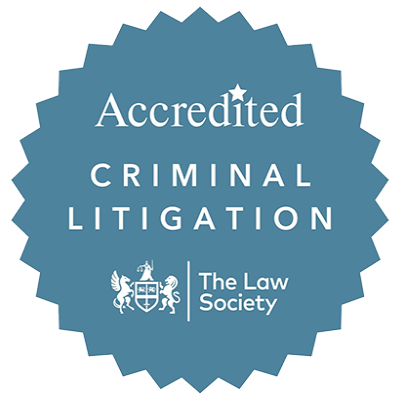Proceeds of Crime
Since the introduction of the Proceeds of Crime Act in 2002 (POCA), specialist teams were established by the Police and HM Revenue and Customs with widespread powers to seize and detain cash and property related to or intended for criminal conduct. Before POCA, confiscation proceedings were dealt with under the Criminal Justice Act 1988 and the Drug Trafficking Act 1994. POCA provided the Court with ‘draconian’ powers to confiscate assets and to make ‘assumptions’ as to how certain assets had been obtained. Any asset said to be the benefit of either general or particular criminal conduct could potentially be confiscated.
Murria Solicitors is very well placed to offer an unparalleled service in this area, as not only do we have team of solicitors who are experienced in both criminal law and civil law, but we are also a member of the Specialist Fraud Panel and the Legal Services Commission’s Very High Cost Cases Panel.
Murria Solicitors have many reported cases on the subject of Proceeds of Crime, having successfully appealed crown court decision relating to confiscation proceedings before the Court of Appeal and at the Supreme Court of Justice.
The Business and Crime department has diverse range of high-end criminal cases and is recommended in the Legal 500 UK due to its extensive experience in the fields of complex and serious fraud, and representing clients throughout the UK in financial crimes (some involving £100’s of millions of pounds and with an international dimension).
Restraint Orders
The Restraint provisions of the Proceeds of Crime Act can have a substantial impact on individuals and businesses. See below for details on how you might be affected by the provisions.
The Provisions can include:
- Freezing assets just as criminal investigations are getting underway, prior to criminal charges being made. The prosecution can make applications without providing any notice to the individual.
- Freezing assets of individuals, third parties connected to them and/or companies. International applications can be made if deemed necessary.
- Requests by court order for immediate disclosure of UK and overseas assets
- Statements of truth by court order requiring in-depth comprehensive information of transfers and assets over several years
- Repatriation of overseas assets to the UK
- Management Receivers appointed to trace and recover assets
- Production Orders to source personal records
- Contempt proceedings if non-cooperation is suspected
- Orders to reduce living expenses as well as business expenditure
call us now on 0333 800 0033 or fill in the contact us form.
At Murria, our specialist lawyers have the experience and expertise to provide advice on relevant matters including:
- Releasing third-party assets
- Applying to discharge Restraint Orders
- Variation of Restraint Orders so assets can be released and assets can be sold and acquired
The harsh provisions of the Proceeds of Crime Act mean third parties and corporate entities can easily be negatively impacted. Talk to us today to find out more about reducing the impact of the Proceeds of Crime Act on you, your business and related entities.
Confiscation
Confiscation Orders are often made following convictions following an examination by the Court to determine the available amount (i.e. to determine what assets are held and the value of those assets). A confiscation order can be made in the sum of the benefit of criminal conduct or the sum of the available amount whichever figure is the lower. Following the Confiscation Order if any sum remains unpaid then a term of imprisonment can be imposed for non-payment.
Following a criminal conviction for a particular offence the Prosecuting authority may invite the Court to determine whether the defendant has a ‘criminal lifestyle’ under the provisions of POCA. A defendant has a ‘criminal lifestyle’ for confiscation purposes ONLY if at least one of the three alternative criteria of s75 POCA 2002 are met.
- Firstly, if it can be shown that the defendant was convicted of one (or more) of the offences listed in schedule 2 POCA 2002;
- Secondly, involves multiple offences of any type or types providing that the total relevant benefit obtained by the defendant from the offences (including any offences ‘taken into consideration’ in sentencing for any of the relevant offences) is at least £5,000 and either he has been convicted in the same court proceedings of at least four offences from which he has obtained a benefit, or in the six years prior to being charged with the offence currently before the court he has been convicted on at least two separate occasions of offences from which he has obtained a benefit; and
- Thirdly, the offence was said to have taken place over a period of six months from which he has obtained a benefit of at least £5,000.
When assessing the defendant’s ‘benefit’ for confiscation purposes in a ‘criminal lifestyle’ case the prosecutor will usually investigate money and assets which have passed through the defendant’s hands or come under his control since the ‘relevant day’ (i.e. normally the day six years before the day on which the defendant was charged with the offence of which he has been convicted).
The onus is then on the defendant to satisfy the court that those monies or assets are in fact not proceeds of crime and demonstrating how they could be said to legitimate.
A court can also be invited to assume that some transfers of property or monies to third persons were tainted gifts, and thus also recoverable.
At Murria Solicitors we do not basically accept the assertions made by the Prosecution relating to the benefit of crime, but we forensically examine (often with the assistance of forensic accountants) that the figures are thoroughly challenged.
As briefly mentioned Confiscation Orders can also affect innocent connected third-parties. We have vast experience in challenging confiscation proceedings at all stages and can use our expertise and influence to reduce the Available Amount.
Murria Solicitors having represented defendants’ in numerous complex and high value confiscation proceedings (circa £50 million), we can seek to:
- Argue against confiscation proceedings being initiated at the Crown Court
- Reduce Benefit Figures and Available Amounts substantially
- Challenge Assumptions
- Challenge applications to reopen Confiscation Orders
- Overturn Confiscation Orders at the Court of Appeal
- Overturn applications to instigate criminal lifestyle cases
Contact Murria today for more advice on challenging Confiscation Orders
Enforcement
Enforcement proceedings are often invoked in the Magistrate’s Court after Confiscation Orders are left unpaid in full or in part by specified deadlines, with the consequences including default sentences being served. We can help in all Enforcement proceedings aspects, including:
- Representing clients in the Magistrate’s Court
- Negotiating certificates of inadequacy and variations regardless of findings from the original Crown Court hearings
- Challenging the appointment of Receivers to sell our clients’ assets
- Challenging applications for default sentences
- Applications to extend payment deadlines, even beyond statutory time limits, to delay enforcement proceedings
- Discharge and vary confiscation orders
- Advise you on appealing confiscation orders
Third Party Representation
Restraint and Confiscation Orders and Enforcement Proceedings can have a devastating impact on third-parties, even when they are innocent of any wrong-doing. Though this is a complicated legal area, we have substantial experience in acting on behalf of third parties affected by restraint and confiscation, including the following services.
- Applying to release assets and income from Restraint
- Advice on whether to give witness statements
- Representation in enforcement proceedings
- Challenging Enforcement Receivers’ applications on third-party assets
- Representation in the Crown and High Court
Cash Seizure Detention & Forfeiture
If the police or customs find in your possession more than £1,000 of cash and they have grounds for suspecting that it is either the proceeds of crime or for use in unlawful activity, they are able to seize the cash and demand an explanation from you with how the cash has been generated together with supporting evidence. At Murria, we can assist you with:
- Challenging Magistrate’s Court Detention Orders that enable police to confiscate cash for a maximum two years whilst investigations take place.
- Forfeiture Orders made by the Magistrate’s Court where the individual is unable to prove the cash came from a legitimate source and was used for legitimate purposes.
- Issues related to recovery of costs.
The cash may be confiscated even if it belongs to another person or entity, and it can be incredibly difficult to retrieve it. However, if we believe you have a strong case to defend, you can count on us to do everything in our power to challenge cash seizure detention and forfeiture issues.
Civil Recovery
Civil recovery proceedings normally occur when prosecutors believe assets were sourced via criminal conduct, yet they don’t have sufficient evidence to bring criminal cases. These proceedings can even take place following Crown Court acquittals. The jury does not need to be satisfied beyond reasonable doubt for civil recovery to take place – the court simply needs to be satisfied that the assets are likely to be the proceeds of crime based on the balance of probabilities. At Murria, we can analyse evidence and collect information that will help us negotiate with the authority investigating the case.
To find out more about how Murria can help you with proceeds of crime cases, fill in the form below or call us now on 0333 800 0033.


